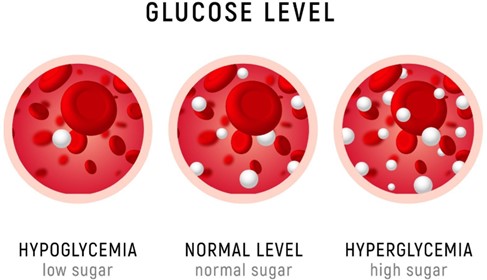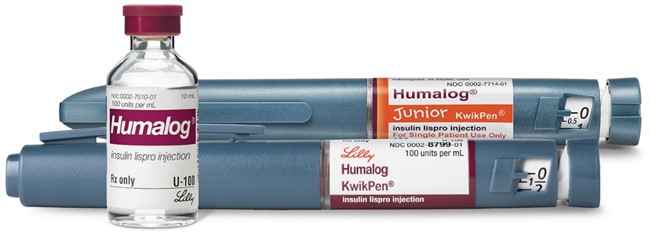A hospitalized patient who is diabetic received 38 U of NPH insulin at 7:00 AM. At 1:00 PM, the patient was away from the nursing unit for 2 hours, missing the lunch delivery while awaiting a chest x-ray.
What is the best action by the nurse to prevent hypoglycemia?
Request that if testing is further delayed, the patient will eat lunch first.
Send a glass of orange juice to the patient in the diagnostic testing area.
Save the lunch tray for the patient's later return.
Plan to discontinue the evening dose of insulin.
The Correct Answer is B
The patient received 38 U of NPH insulin at 7:00 AM, and by 1:00 PM, the insulin has been active for approximately 6 hours. The patient has missed lunch, which may lead to hypoglycemia, especially with the activity of the insulin.
Sending a glass of orange juice will provide the patient with a quick source of glucose to prevent hypoglycemia. If testing is further delayed, the nurse may request that the patient be allowed to eat lunch first or save the lunch tray for later, but immediate intervention is necessary to prevent hypoglycemia. Discontinuing the evening dose of insulin is not an appropriate action and should not be considered without consulting the healthcare provider.

Nursing Test Bank
Naxlex Comprehensive Predictor Exams
Related Questions
Correct Answer is D
Explanation
Yes, that's correct. Insulin lispro (Humalog) is a rapid-acting insulin, which means it begins to work quickly after injection, usually within 15 minutes, and it peaks in about 1 to 2 hours. It typically lasts for 3 to 4 hours in the body.

Correct Answer is B
Explanation
The patient received 38 U of NPH insulin at 7:00 AM, and by 1:00 PM, the insulin has been active for approximately 6 hours. The patient has missed lunch, which may lead to hypoglycemia, especially with the activity of the insulin.
Sending a glass of orange juice will provide the patient with a quick source of glucose to prevent hypoglycemia. If testing is further delayed, the nurse may request that the patient be allowed to eat lunch first or save the lunch tray for later, but immediate intervention is necessary to prevent hypoglycemia. Discontinuing the evening dose of insulin is not an appropriate action and should not be considered without consulting the healthcare provider.

Whether you are a student looking to ace your exams or a practicing nurse seeking to enhance your expertise , our nursing education contents will empower you with the confidence and competence to make a difference in the lives of patients and become a respected leader in the healthcare field.
Visit Naxlex, invest in your future and unlock endless possibilities with our unparalleled nursing education contents today
Report Wrong Answer on the Current Question
Do you disagree with the answer? If yes, what is your expected answer? Explain.
Kindly be descriptive with the issue you are facing.
